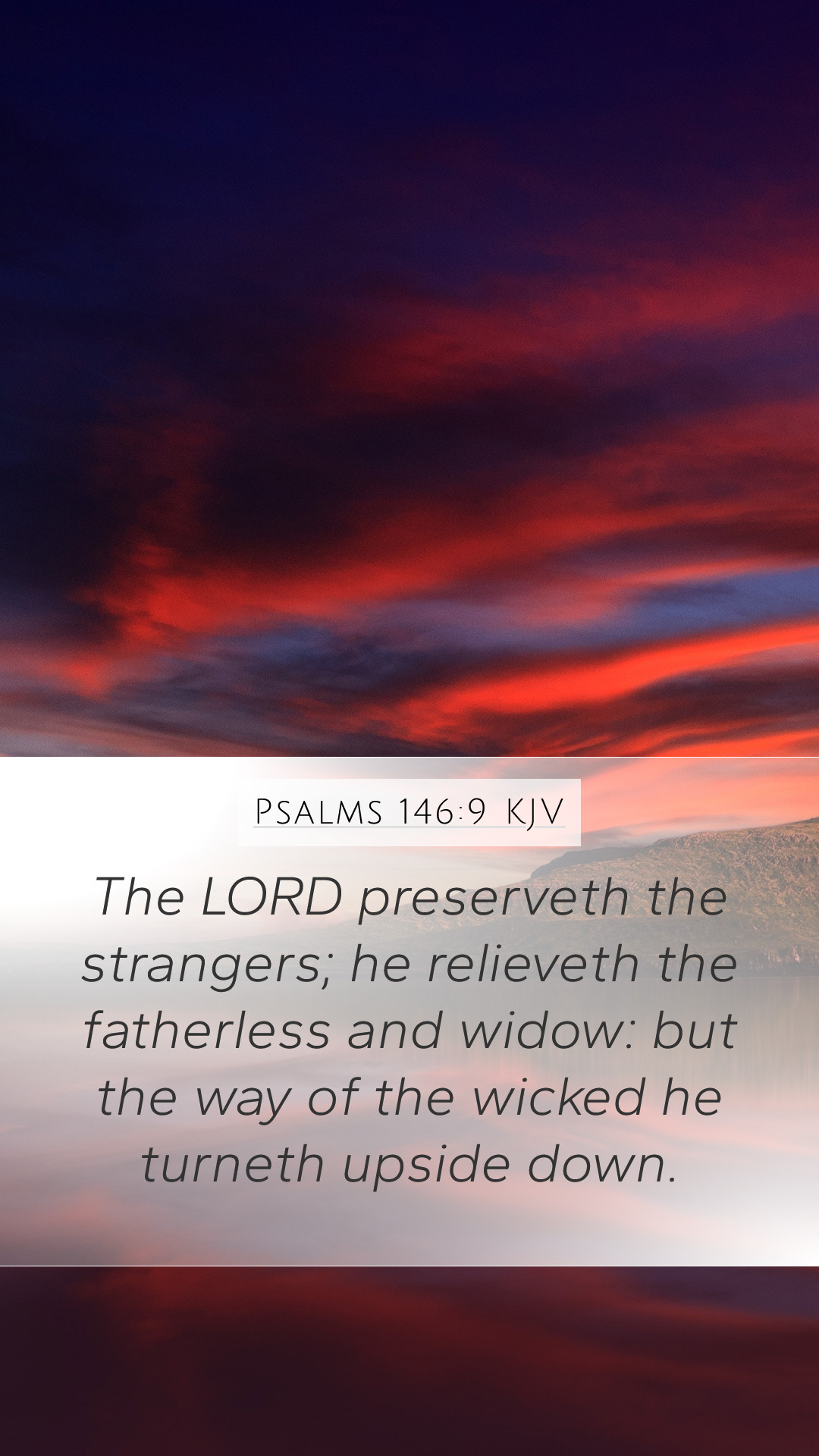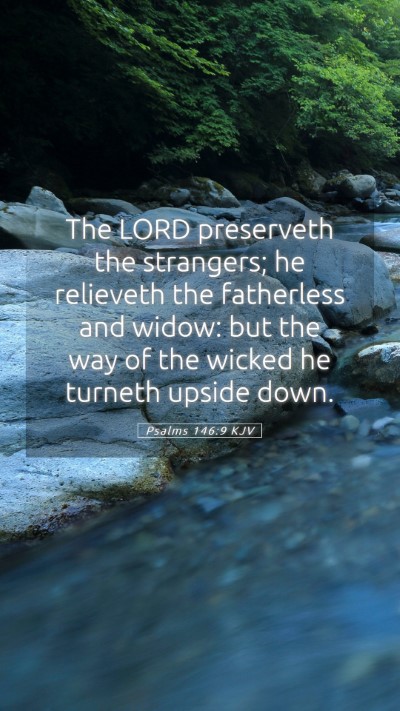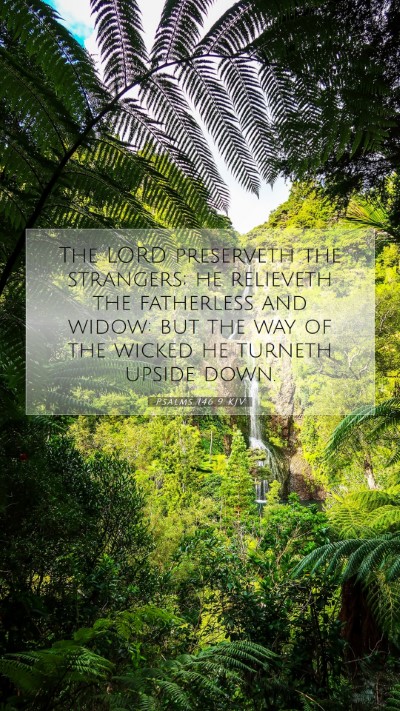Bible Verse Meaning and Commentary on Psalms 146:9
Psalms 146:9 states, "The LORD protects the strangers; He supports the fatherless and the widow, but He thwarts the way of the wicked." In this verse, the Psalmist underscores God's care for the vulnerable and His opposition to wickedness.
Summary of Insights
This verse highlights three main roles that God plays in relation to humanity:
- Protector of Strangers: God actively safeguards those who are outsiders or marginalized in society.
- Supporter of the Fatherless and Widow: He provides special attention and care for those who lack familial support.
- Opposition to the Wicked: God actively resists and hinders those who perpetrate evil.
Detailed Commentary
Protecting Strangers: Commentators like Matthew Henry note that 'strangers' refer to those who are outside the community of faith. It signifies God’s open invitation and care for all people, especially those who are typically overlooked. The inclusion of strangers emphasizes God's universal mercy, showing that His love extends beyond the chosen people.
Support for the Vulnerable: Albert Barnes points out that the 'fatherless and widow' represent the most defenseless members of society. Their plight resonates throughout Scripture as a call for justice and compassion. This portrays God's intimate knowledge of individual suffering and His role as a divine caretaker. In historical contexts, this was especially significant as cultural norms often left these groups in desperate straits without any societal protection.
Thwarting the Wicked: According to Adam Clarke, the phrase 'thwarts the way of the wicked' communicates that God does not remain passive amidst injustice. Instead, He actively intervenes to disrupt the plans of those who do wrong, reaffirming His sovereignty and moral order within the world. This verse serves as a warning that while God nurtures and defends the innocent, He simultaneously judges those who commit unrighteous acts.
Theological Implications
This verse carries profound implications for the understanding of God’s justice and mercy. The juxtaposition of His protection for the vulnerable and His opposition to wickedness illustrates His character as both loving and just. It encourages believers to align themselves with God's priorities—caring for the marginalized while striving against wickedness.
Applications for Believers
In applying the meaning of Psalms 146:9 to daily life, believers are compelled to:
- Engage in acts of kindness: One way to reflect God’s character is by proactively helping those in need, ensuring that strangers feel welcomed and cared for.
- Advocate for justice: Stand against injustice and support systems that protect the fatherless, widows, and all vulnerable groups.
- Reject wickedness: Actively avoid paths that lead to moral corruption, instead promoting righteousness in personal and communal spheres.
Cross References
This verse can be cross-referenced with several other passages that illuminate similar themes:
- Deuteronomy 10:18: "He executes justice for the fatherless and the widow, and loves the stranger, giving him food and clothing."
- Psalm 68:5: "A father of the fatherless, a defender of widows, is God in His holy habitation."
- James 1:27: "Pure and undefiled religion before God is this: to visit orphans and widows in their trouble, and to keep oneself unspotted from the world."
Conclusion
Psalm 146:9 encapsulates the depth of God’s compassion towards the marginalized and His fierce opposition to wickedness. This understanding encourages meaningful reflection within Bible study groups and offers rich material for online Bible study and sermons. Through Scripture analysis, believers can uncover deeper truths about God's character and their own call to reflect His justice and mercy in the world. The encouragement derived from such a verse is profound; it calls for active love and righteous living, guiding believers towards a life that honors God and serves humanity.


